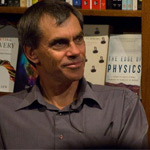 Graham Oppy is Professor of Philosophy and Head of the School of Philosophical, Historical and International Studies (SOPHIS) at Monash University. We invited him to answer the question “What norms or values define excellent philosophy of religion? as part of our “Philosophers of Religion on Philosophy of Religion” series.
Graham Oppy is Professor of Philosophy and Head of the School of Philosophical, Historical and International Studies (SOPHIS) at Monash University. We invited him to answer the question “What norms or values define excellent philosophy of religion? as part of our “Philosophers of Religion on Philosophy of Religion” series.
The norms and values that determine whether something is excellent philosophy of religion depend upon what kind of thing is in question.
If we ask whether a particular text—blog post, book, book chapter, book review, encyclopedia entry, journal article, journal, magazine, magazine article, web content, etc.—is excellent philosophy of religion, then, among other considerations, we wish to know whether that text is challenging, clear, concise, informed, lively, original, rigorous, serious, significant, and so forth. It is plausible to suppose that there are many different kinds of trade-offs between relevant norms and values in excellent philosophy of religion texts.
If we ask whether a particular exchange is excellent philosophy of religion, then, among other considerations, we wish to know whether that exchange is balanced, civil, focussed, generous, informative, knowledgeable, profitable, respectful, well-tempered, and so forth. There are different kinds of written exchanges and different kinds of verbal exchanges; it is plausible to suppose that there is variation in the significance of particular norms and values for particular kinds of exchanges.
If we ask whether a particular person manifests excellence in philosophy of religion, then, among other considerations, we wish to know whether that person, in their engagements in philosophy of religion, manifests charity, education, expertise, honesty, imagination, integrity, intelligence, knowledge, reflection, sympathy, understanding, wit, and so forth. One particularly important aspect of personal excellence in philosophy of religion is imaginative sympathy: exercise of the capacity to see things from the standpoints of those with whom you are in deep disagreement.
If we ask whether a particular collective—e.g. editorial team, learned society, publishing press, university department—manifests excellence in philosophy of religion, then, among other considerations, we wish to know whether that collective is accountable, connected, improving, independent, open, transparent, well-governed, well-managed, and so forth. Of course, when we assess collectives, we assess their members, the exchanges in which they engage, the texts that they produce, and so forth. But, on top of all of this, there are norms and values that apply to collectives qua collectives.
If we ask whether, at a particular point in time, the discipline is manifesting excellence in philosophy of religion, then, among other considerations, we wish to know whether the discipline is comprehensive, developing, diverse, inclusive, tolerant, well-focussed, and so forth. Thinking about the manifestation of excellence at the level of the discipline directs attention to particularly thorny matters. Is the discipline sufficiently open to members of non-dominant groups? Is the discipline riven by factional strife? Is the discipline sufficiently informed by work in neighbouring disciplines: biology, cultural studies, economics, history, mathematics, neuroscience, physics, political science, psychology, religious studies, sociology, and so on? Does the discipline do justice to the full range of world religions? Has the discipline largely been captured by ideologues pushing particular barrows? Etc.
An obvious question prompted by the discussion to this point is whether the norms and values that determine whether something is excellent philosophy of religion are unique to philosophy of religion. It is evident to inspection that almost everything that I have said so far about texts, exchanges, people, collectives, and the discipline could also be said about other philosophical disciplines—e.g. applied ethics and political philosophy—and about other disciplines more broadly—e.g. religious studies and cultural studies. Sure, not all of these disciplines need to worry about doing justice to the full range of world religions; but all of them do need to worry about doing justice to the full range of relevant subject matters. Philosophy of religion is philosophy of religion; so, of course, it is important that philosophy of religion does justice to the full range of world religions. But, in equal measure, political philosophy is political philosophy: it is important that political philosophy does justice to the full range of political persuasions and institutions. And, in no less equal measure, religious studies is religious studies: it is important that religious studies does justice to the full range of world religions.
I am inclined to think that the norms and values that determine whether something is excellent philosophy of religion are entailed by the norms and values that determine, for any X, whether something is excellent philosophy of X. Moreover, I am inclined to think that the norms and values that determine, for any X, whether something is excellent philosophy of X are entailed by the norms and values that determine whether something is excellent philosophy. Perhaps we should consider going further: perhaps the norms and values that determine whether something is excellent philosophy are entailed by the norms and values that determine, for any discipline X, whether something is excellent X. But I am hesitant. Given the way that philosophy is related to other disciplines—and, in particular, given that philosophy is unique in nowhere having universal expert agreement on claims and methods—I think that we should not be too surprised to find that there are some norms and values unique to philosophy that enter into the determination whether something is excellent philosophy. Of course, what I have just said is compatible with the claim that almost all of the norms and values that determine whether something is excellent philosophy are entailed by the norms and values that determine, for any discipline X, whether something is excellent X. It is plausible that, if the norms and values that determine whether something is excellent philosophy are not all entailed by the norms and values that determine, for other disciplines, what makes for excellence in those disciplines, the shortfall is not very extensive.
Although the norms and values that determine whether something is excellent philosophy of religion depend upon what kind of thing is in question, we can appeal to all of those norms and values when we make judgments about the current standing of philosophy of religion. For, of course, a judgment about the current standing of philosophy of religion will be an aggregative judgment that assesses—perhaps among other things—the current overall state of texts, exchanges, people, collectives, and matters specific to the wider discipline.



